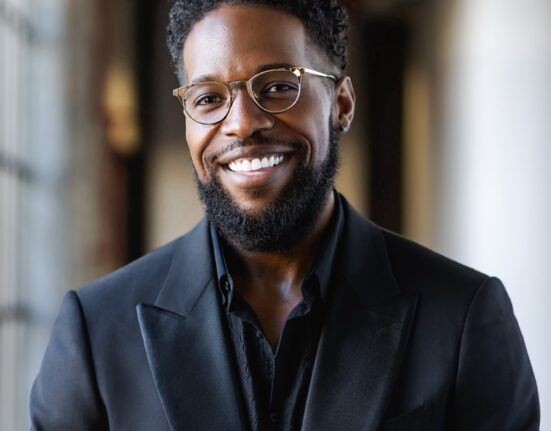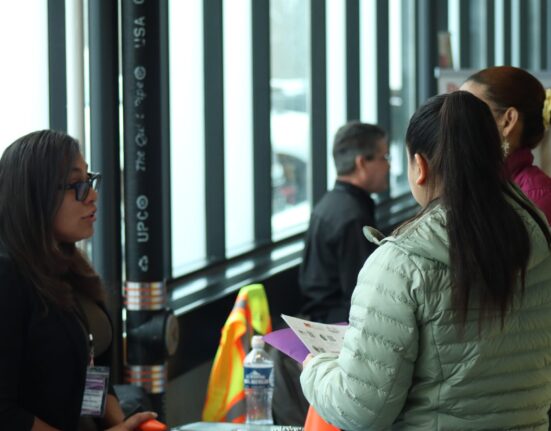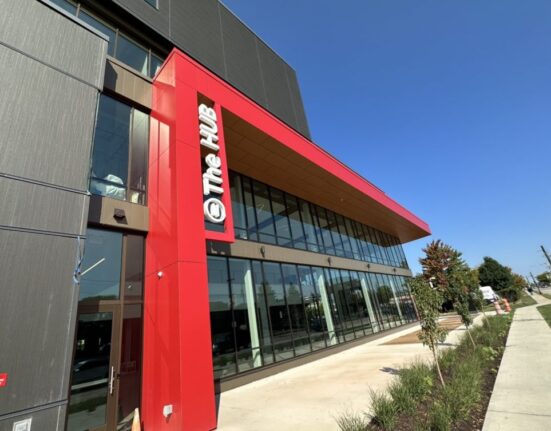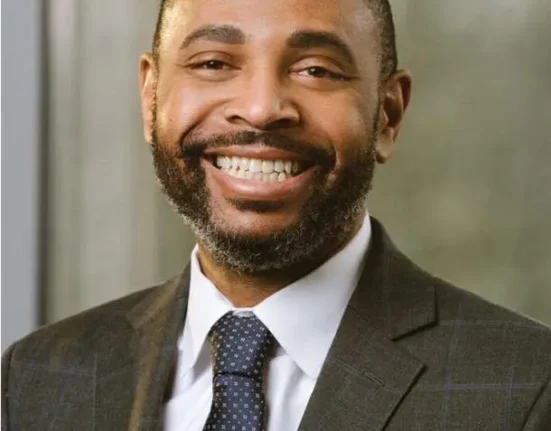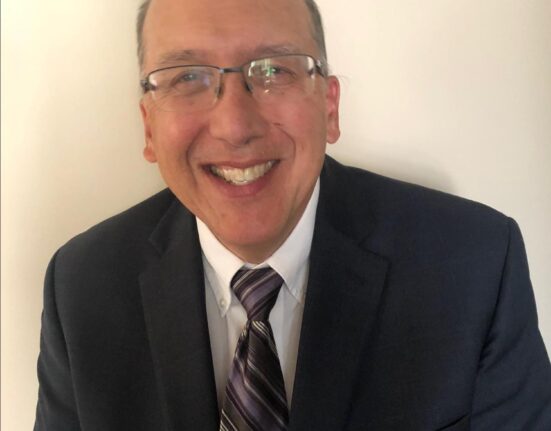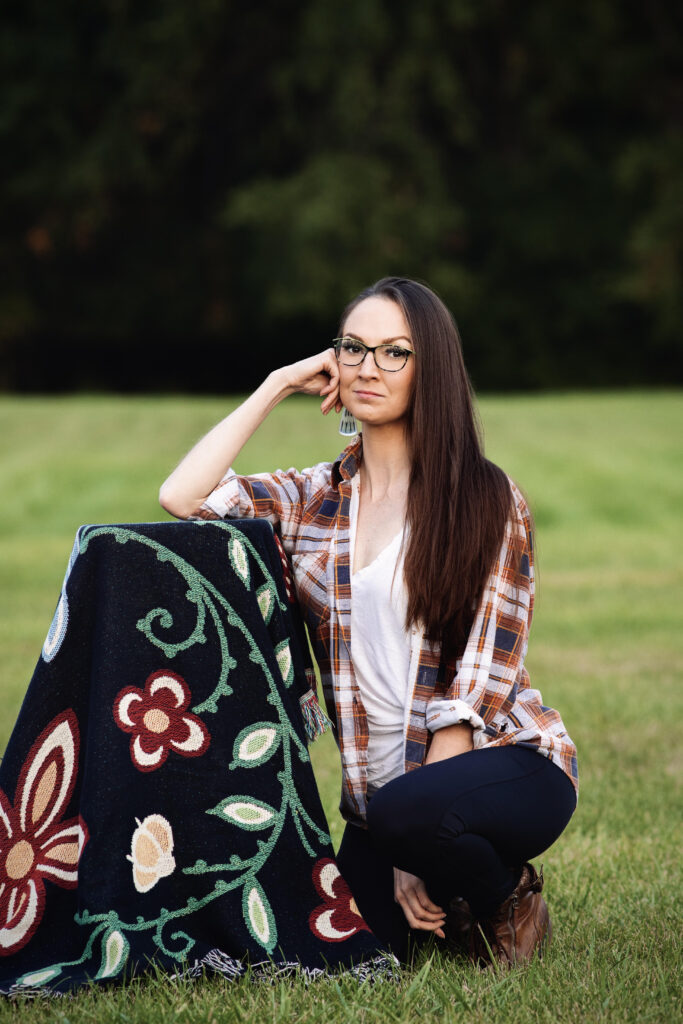
This feature first appeared in Blueprint365 magazine. Click here to request your complimentary copy.
Like many entrepreneurial journeys, Rebecca Comfort’s began with dissatisfaction in her day job.
As American Indian Nations Liaison for the Wisconsin State Historical Society, she felt keenly the way Indigenous people were erased from Wisconsin’s history for so long – and felt the keepers of that history were at least somewhat complicit in that erasure.
Besides that, she found the day-to-day work exhausting.
“When you’re living in a world where these things have such an enormous impact on you, but it seems like the rest of the world is not aware of it, and you’re continuously having to re-educate people, that’s a pretty traumatic state to be stuck in,” said Comfort, a member of the Keweenaw Bay Indian Community band of Lake Superior Ojibwe.
So she did the only thing she could – took a leap without a safety net.
“I’ve never resigned from a job without having another one,” she said. “But this one … myself confidence had just evaporated, more or less. Applying for jobs, trying to sort of get my ducks in a row beforehand, wasn’t happening, and I needed to get out of the situation.”
So she gave her notice in December 2022, intending to “buckle down” in January to find a new job, go back to grad school, or maybe even hang her own shingle as a DEI consultant.
But that same day she got a call – her mother had just been diagnosed with breast cancer.
“What I had anticipated doing kind of went out the window,” she said. She dedicated herself to supporting her mother through chemotherapy, surgery and radiation treatments – all of which had successfully concluded by the end of August.
And in the meantime – another thing that often happens in entrepreneurial journeys – a passion and labor of love turned into a source of income, and, eventually, a business.
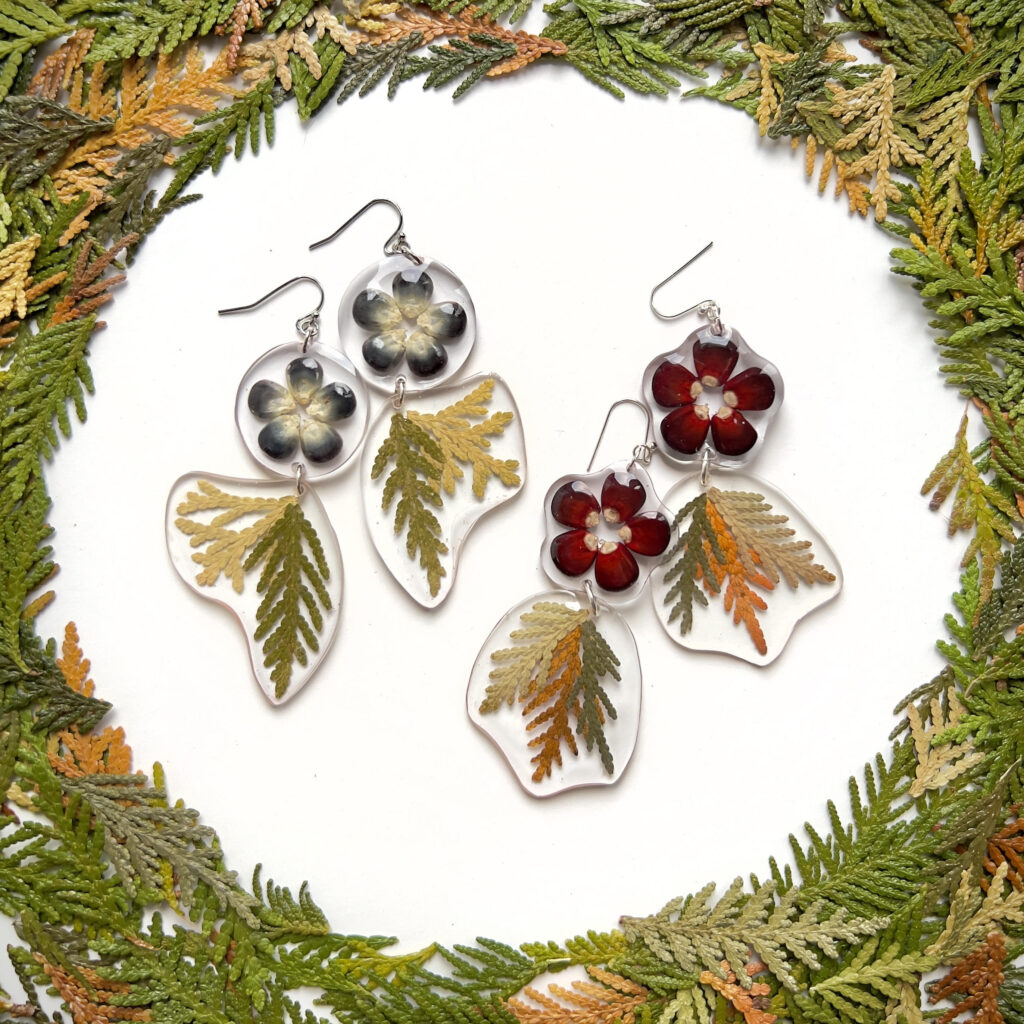
“The most punk rock thing I know”
Contemporary Native art defies conventions, Comfort said – especially those that seem to always want to speak of Indigenous peoples and cultures in the past tense.
“Contemporary American Indian art is the most punk rock thing I know,” she said, identifying herself as a “millennial punk kid.”
“I think it’s about defying the expected conventions in favor of a kind of radical self-expression,” she said.
What conventions, exactly?
“The so-called received wisdom about who and what society thinks of Native people as being. The stuff that’s based in mysticism and the media but also, and probably even more so, the ideas that are determined to relegate Native people to always being stuck in the past,” she said. “I’m dreaming my way out of the cognitive box of imperialism, in the words of Leanne Simpson.”
“I feel naked without earrings”
Comfort began tinkering with making earrings four or five years ago, she said, mostly for herself.
“I feel naked without earrings,” she said.
She said she wouldn’t call it a hobby, exactly.
“When I first started making earrings, I think it was more of a healthy, creative outlet,” she said. “I’ve found it to be very, very meditative.”
The earrings she began with were wild rice encased in clear resin, using the natural colors and patterns of an important cultural resource to create unique designs.
“I used to just take some with me as I was traveling or out and about in Indian country and would sell them that way,” she said. “I was really fortunate and I had a lot of interest and folks that were looking to purchase my earrings before I pursued it” as a business.
But as she found herself without a job, focused on her mother’s care, it made more and more sense to lean into her identity as an artist.
“I’ve always been artistic and creative,” she said, and in May 2023 started selling earrings on through her Instagram account. It was mostly self-funded, with a little help from a Gofundme campaign. It took off quickly.
“I’ve found that I sell my earrings just as fast as I post them,” she said.
A couple things have kept the business from growing too fast, though.
“I’m so uncomfortable with self-promotion,” Comfort said – but she understands the need to do so, which she wants to do through a new website, GoodSeeds.art.
“I’m a perpetually recovering perfectionist,” she said with a laugh, and it’s been slow going getting that website just right.
“It’s amazing how much time is required on the back end for product photography,” she added.
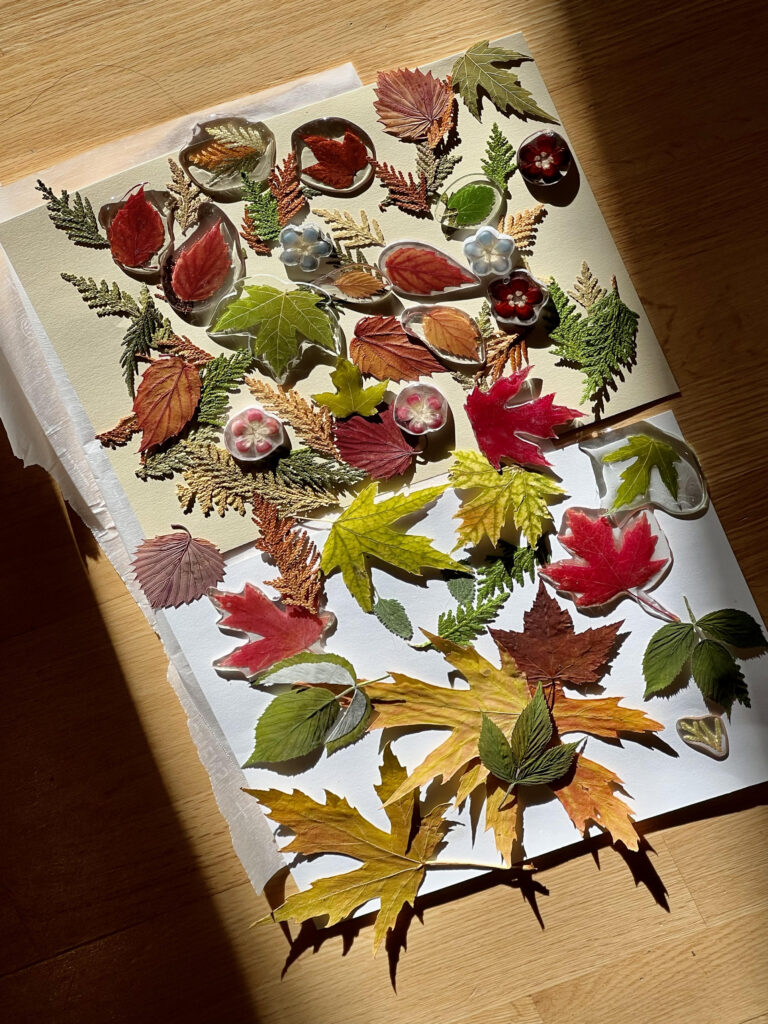
A time-intensive art
That’s not the only thing that takes a lot of time. Comfort estimates that any time she acquires a new batch of rice (usually gifted from fellow Indigenous people, for whom she makes earrings in return), she spends 20 to 40 hours just sorting the grains. Then it’s several more hours arranging the grains into the patterns that ultimately go into the resin, and more time finishing the smooth edges of the resin.
The finished product then sells for $100 – $150.
Lately, Comfort has been branching out beyond rice, creating earrings with porcupine quills, corn, and even dried leaves.
“A huge victory was figuring out how to dry leaves while maintaining the best color,” she said. “I enjoy taking natural materials and using them to recreate something that they’re not.”
She hopes the new website will be a place not only to showcase what she makes, but to take custom orders.
Comfort said most of her customers are concentrated in Wisconsin at the moment, but she has shipped orders from New York to Oklahoma.
Comfort will also generate revenue as a teaching artist and cultural consultant – her first artist’s residency is set for November 2023 at Marquette University in Milwaukee.
Because for Comfort, it’s about uplifting Native cultures as much as it is about beautiful jewelry. And that means reminding folks that Indigenous people don’t just exist in the past.
“Native cultures are never stagnant; they’re living and breathing things,” she said. “We have a right to assert our place and establish our own sense of what it means to be a contemporary Native artist in the 21st century.”

